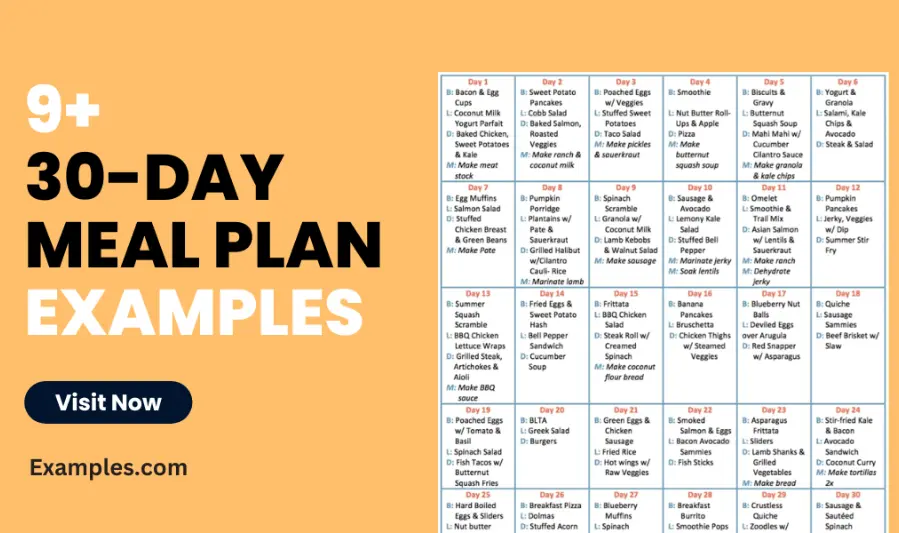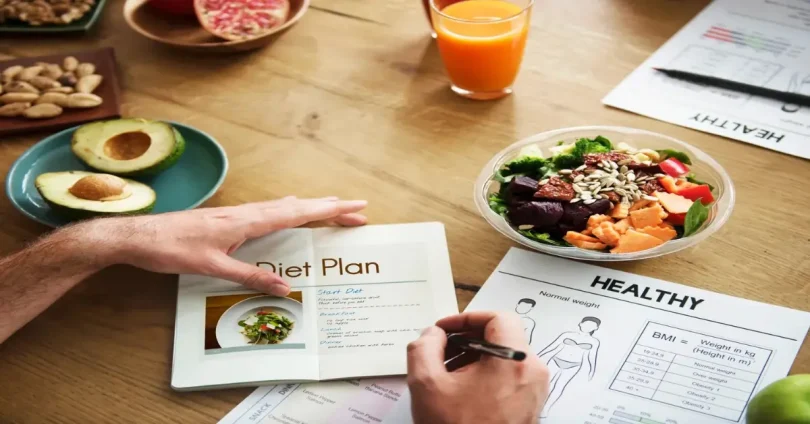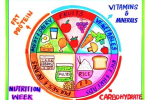Introduction
Starting a healthy eating journey is one of the most impactful steps toward improving your lifestyle. For beginners, this journey may feel overwhelming at first, but it becomes easier with the right guidance and consistent habits. By choosing nutritious foods and understanding your body’s needs, you can experience increased energy, better weight balance, stronger immunity, and overall improved health.
Why Healthy Eating Matters
2.1 Improves Physical Health
Healthy eating provides your body with essential nutrients needed for proper functioning, growth, and repair. A balanced diet also strengthens the immune system, helping the body fight off infections and stay resilient.
2.2 Boosts Energy and Productivity
Nutritious meals help maintain stable blood sugar levels, preventing sudden energy crashes. This leads to better focus, improved concentration, and higher productivity throughout the day.
2.3 Helps in Weight Management
Choosing whole and unprocessed foods naturally supports calorie control. When you eat nutrient-dense meals, your body feels full for longer, making it easier to maintain a healthy weight.
2.4 Reduces the Risk of Diseases
A healthy diet promotes heart health by lowering bad cholesterol and improving blood circulation. It also reduces the risk of developing chronic diseases such as diabetes, high blood pressure, and certain types of cancer.
Key Principles of a Healthy Eating Plan

3.1 Focus on Whole Foods
Base your meals on whole foods like fruits, vegetables, whole grains, and lean proteins. These nutrient-rich options support your body’s needs and keep you full for longer.
3.2 Control Portion Sizes
Use the balanced plate method—half vegetables, one-quarter lean protein, and one-quarter whole grains—to avoid overeating and maintain proper calorie intake.
3.3 Stay Hydrated
Drinking enough water daily is essential for digestion, metabolism, and overall health. Proper hydration also helps improve energy levels and reduces unnecessary snacking.
3.4 Reduce Sugar and Processed Foods
High-sugar and processed items can lead to weight gain, inflammation, and low energy. Minimizing these foods supports stable blood sugar and better long-term health.
3.5 Avoid Skipping Meals
Regular eating helps maintain energy levels and prevents overeating later in the day. Consistent meal timing also supports better metabolism and balanced nutrition.
Beginner-Friendly Meal Ideas
4.1 Breakfast Options
Start your day with nourishing choices like oatmeal topped with fruits, protein-rich eggs, or yogurt bowls with nuts and seeds. These meals provide steady energy and essential nutrients.
4.2 Lunch Ideas
Choose balanced lunch options such as grilled chicken with veggies, fresh salads, or a hearty lentil soup. These meals keep you full and support healthy digestion.
4.3 Dinner Choices
For dinner, aim for lighter, nutrient-dense meals like baked fish, steamed or roasted vegetables, and quinoa. These combinations provide protein, fiber, and essential vitamins.
4.4 Healthy Snacks
Keep your snacking healthy with options like fresh fruit, a handful of nuts, hummus with vegetables, or homemade smoothies. These snacks help maintain energy without adding excess calories.
7-Day Sample Healthy Eating Plan

5.1 Daily Meal Breakdown
Day 1
- Breakfast: Oatmeal with banana slices
- Lunch: Grilled chicken salad
- Dinner: Baked fish with steamed vegetables
Day 2
- Breakfast: Yogurt bowl with nuts and berries
- Lunch: Lentil soup with whole-grain bread
- Dinner: Quinoa with mixed vegetables
Day 3
- Breakfast: Boiled eggs with whole-grain toast
- Lunch: Vegetable stir-fry with brown rice
- Dinner: Grilled chicken with roasted sweet potatoes
Day 4
- Breakfast: Smoothie (fruit + milk or yogurt)
- Lunch: Tuna salad
- Dinner: Steamed fish with quinoa
Day 5
- Breakfast: Oats with chia seeds and honey
- Lunch: Chickpea salad
- Dinner: Vegetable soup with whole-grain bread
Day 6
- Breakfast: Scrambled eggs with vegetables
- Lunch: Grilled vegetables with hummus wrap
- Dinner: Chicken and vegetable stew
Day 7
- Breakfast: Yogurt with granola
- Lunch: Lentil and vegetable bowl
- Dinner: Baked fish with leafy greens
5.2 Mix-and-Match Options
To keep meals interesting, you can combine different ingredients throughout the week:
- Proteins: Chicken, fish, eggs, lentils, chickpeas
- Vegetables: Spinach, broccoli, carrots, bell peppers, cucumbers
- Grains: Oats, quinoa, brown rice, whole-grain bread
- Snacks: Fruits, nuts, yogurt, hummus with veggies, smoothies
These flexible combinations help you enjoy variety while staying consistent with healthy eating
Grocery Shopping Guide
6.1 Essential Pantry Staples
Stocking the right pantry staples makes healthy eating easier and more consistent. Keep whole grains like oats, brown rice, and quinoa; protein-rich items such as lentils and beans; nuts and seeds for quick snacks; and basic spices for flavor without adding calories.
6.2 Fresh Produce Checklist
Fill your cart with a variety of fresh fruits and vegetables to ensure your meals are nutrient-packed. Include options like apples, bananas, berries, oranges, leafy greens, carrots, tomatoes, cucumbers, and peppers to keep your meals colorful and balanced.
6.3 Budget-Friendly Healthy Foods
You don’t need to spend a lot to eat well. Affordable essentials like beans, eggs, potatoes, and seasonal produce offer excellent nutrition at low cost. These ingredients are versatile, filling, and easy to include in daily meals.
Meal Prep for Beginners
7.1 Benefits of Meal Prepping
Meal prepping saves time, reduces daily stress, and helps you stay consistent with healthy eating. It also prevents last-minute unhealthy choices and ensures portion control throughout the week.
7.2 How to Start
Begin with simple batch cooking—prepare basics like grilled chicken, boiled eggs, roasted vegetables, and cooked grains in larger quantities. Plan 2–3 easy recipes, divide them into portions, and mix them throughout the week for variety.
7.3 Storage Tips
Use airtight containers to keep meals fresh and organized. Store cooked food in the refrigerator for up to 3–4 days, and label each container with the date to avoid spoilage. Freezing extra portions can also help reduce waste and save time.
Tips for Staying Consistent
8.1 Set Realistic Goals
Start with small, achievable goals such as adding one extra vegetable a day or drinking more water. Realistic goals make the journey easier and help you stay motivated.
8.2 Plan Weekly Meals
Planning meals ahead saves time and prevents unhealthy choices. Create a simple weekly menu, choose recipes you enjoy, and make a matching grocery list to stay on track.
8.3 Track Eating Habits
Use a notebook or an app to track what you eat, how you feel, and your progress. Tracking helps you understand patterns, stay mindful, and make better decisions.
8.4 Avoid Restrictive Diets
Extreme or highly restrictive diets can lead to frustration and overeating. Focus on balanced eating instead—include all food groups and aim for long-term habits you can maintain.
you may also like to read these posts:
Discover the Beauty of Indonesian Traditional Fashion Styles
Learn Java Easily Online with Simple Coding Examples
Easy Core Java Tutorials for Beginners to Start Coding
Beginner-Friendly Home Workouts: Simple Routines to Get Started
Common Mistakes to Avoid
9.1 Eating Too Few Calories
Consuming too little can slow down your metabolism and leave you tired, making it harder to stay consistent. Your body needs enough fuel to function properly and support healthy progress.
9.2 Cutting Out Food Groups Completely
Eliminating entire food groups can lead to nutrient deficiencies and cravings. Instead of removing foods completely, aim for balance and moderation.
9.3 Drinking Sugary Beverages
Sodas, packaged juices, and sweetened drinks add unnecessary calories and spike blood sugar levels. Choose water, herbal teas, or naturally flavored drinks for healthier hydration.
9.4 Expecting Quick Results
Healthy eating is a long-term lifestyle, not a quick fix. Expecting fast results can cause disappointment—focus on steady progress and sustainable habits.
Hydration and Its Role
10.1 How Much Water You Need
Most people need around 6–8 glasses of water per day, depending on activity level, climate, and overall health. Staying hydrated supports digestion, metabolism, and overall body functions.
10.2 Signs of Dehydration
Common signs include dry mouth, fatigue, headaches, dizziness, and dark-colored urine. When your body lacks water, it becomes harder to focus, exercise, and maintain energy levels.
10.3 Hydration Tips for Daily Use
Keep a water bottle with you, drink a glass of water with every meal, and set reminders if you often forget to hydrate. Including hydrating foods like fruits and vegetables can also boost your daily water intake.
Faqs:
What is the best way to start a healthy eating plan as a beginner?
Start by making small changes such as adding more fruits, vegetables, and whole foods to your meals. Avoid drastic restrictions and focus on building long-term habits.
How many meals should I eat in a day?
Most beginners do well with three balanced meals and one or two healthy snacks. The key is to eat regularly and avoid skipping meals.
Can I still eat my favorite foods while following a healthy eating plan?
Yes. You can enjoy your favorite foods in moderation. A healthy eating plan is about balance, not strict limitations.
How important is hydration in a healthy eating plan?
Hydration plays a major role in digestion, energy, and overall health. Aim to drink enough water throughout the day based on your activity levels.
Do I need to count calories as a beginner?
Calorie counting is not necessary for beginners. Focus on portion sizes, whole foods, and balanced meals rather than strict numbers.
Conclusion
Starting a healthy eating journey doesn’t have to be complicated. By focusing on whole foods, staying hydrated, planning your meals, and avoiding common mistakes, you can build habits that support long-term wellness. Small, consistent changes lead to lasting results—more energy, better weight balance, and improved overall health. Remember, healthy eating is a lifestyle, not a short-term fix, and every step you take brings you closer to a stronger, healthier you.





